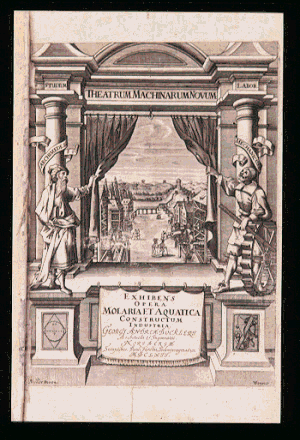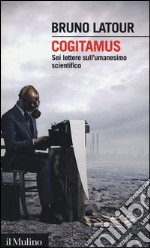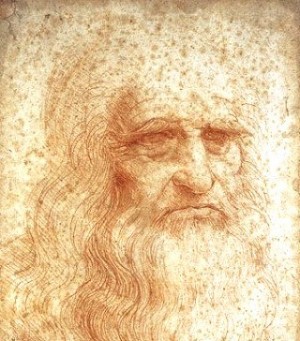On Friday May 3, regular lectures of History of Technology, starting at 4.00 PM, Room 6
Venerdì 3 maggio, lezioni regolari di Storia della tecnologia, con inizio alle ore 16.00, Aula 6
Notes and comments around the lectures of Vittorio Marchis
Tuesday, April 30, 2013
Saturday, April 27, 2013
Technology and Education
Patents
The origin of patents can be placed in Venice, when in 1474 the Senate of the Republic enacted a decree that new and inventive devices, once put into practice, had to be communicated to the Republic to obtain the right to prevent others from using them.
Then in England the Statute of Monopolies in 1624 started the modern institution of a "patent office" and with the origin of the "royal" academies the government of England (1662) and France (1666) assumed the role of evaluating and approuving the innovative features of new inventions.
Patents can be a very important documents for the history of technology. Internet sources can be found in:
Then in England the Statute of Monopolies in 1624 started the modern institution of a "patent office" and with the origin of the "royal" academies the government of England (1662) and France (1666) assumed the role of evaluating and approuving the innovative features of new inventions.
Patents can be a very important documents for the history of technology. Internet sources can be found in:
Friday, April 26, 2013
Public History
.jpg)
Public History describes the many and diverse ways in which history is put to work in the world. In this sense, it is history that is applied to real-world issues.
In the USA exists a National Council for Public History headquartered on the Campus of Indiana Prudue University, Indianapolis
Tuesday, April 23, 2013
Notice - Avviso
On Friday 26, regular lectures of History of Technology , starting at 4.00 PM, Room 6
Venerdì 26, lezioni regolari di Storia della tecnologia, con inizio alle ore 16.00, Aula 6
Venerdì 26, lezioni regolari di Storia della tecnologia, con inizio alle ore 16.00, Aula 6
Tuesday, April 16, 2013
La piazza universale di tutte le professioni del mondo
Tommaso Garzoni wrote La piazza universale di tutte le professioni del mondo in 1585. This is a very interesting analysis of all trades and professions of 16th century, with historical hints.

Technology in 16th century: François Rabelais
François Rabelais (1494 – 9 April 1553) was a major French Renaissance writer, doctor, Renaissance humanist, monk and Greek scholar. He has historically been regarded as a writer of fantasy, satire, the grotesque, bawdy jokes and songs. His best known work is Gargantua and Pantagruel. Rabelais is considered one of the great writers of world literature and among the creators of modern European writing.


Metals: bronze, lead, steel, copper, gold, silver, ...
Natural stuff: wood, amber, ivory, bone, cotton, wool, silk, line,...
Tools and engines: Hammer, envil, saw, drill, mill,...
Other pleasant readings...
Silvia Avallone, Acciaio
Ippolito Nievo, Confessioni di un Italiano
Robert Pirsig, Lo Zen e l'arte della manutenzione della motocicletta
Gustave Flaubert, Bouvard e Pecuchet
Ian McEwan, Solar
Sten Nadolny, La scoperta della lentezza
Ippolito Nievo, Confessioni di un Italiano
Robert Pirsig, Lo Zen e l'arte della manutenzione della motocicletta
Gustave Flaubert, Bouvard e Pecuchet
Ian McEwan, Solar
Sten Nadolny, La scoperta della lentezza
Saturday, April 13, 2013
Theatrum Machinarum
With the "press revolution" in 16th century a new gender of books appears: The Idea of Teatre becomes applicable also to Technology.








The dome

Cogitamus

Cogitamus: a new book by Bruno Latour, philosopher and historian of sciences presents a series of letters to a student in the field of “humanités scientifiques”. Originally written in French, there is now also an Italian translation published by il Mulino.
The first advice, with respect to the debate around the humanités scientifiques (i.e. the connection between the sciences+techniques and the humanities), given by the professor is: "Sappia che alla base di tutto c'è un'attenta lettura dell'attualità [...] cominci a tenere un diario di bordo che potrà riempire come meglio crede, il più regolarmente possibile, annotando i documenti, i fatti e gli esempi che avrà trovato [...] ritagli i giornali, faccia delle fotografie, [...] attenzione, non dimentichi di annotare sempre scrupolosamente la fonte dei documenti [...]"
Tuesday, April 9, 2013
Middle Age Engineers
Villard de Honnecourt, [Album], (1265)
Guido da Vigevano, Texaurus Regis Francie, (1335)
Mariano di Jacopo, il Taccola, De machinis e De ingeneis (1419-1449)
Francesco di Giorgio, Trattati di ingegneria civile e militare, (1484)
Guido da Vigevano, Texaurus Regis Francie, (1335)
Francesco di Giorgio, Trattati di ingegneria civile e militare, (1484)
Notice / Avviso
On Friday, April 12th, the lectures begin at 4 PM and end at 7 PM.
Venerdì 12 Aprile, le lezioni iniziano alle ore 16 e terminano alle ore 19.
See http://machine-history.blogspot.it/2013/03/timetable-of-lectures-2013.html
Venerdì 12 Aprile, le lezioni iniziano alle ore 16 e terminano alle ore 19.
See http://machine-history.blogspot.it/2013/03/timetable-of-lectures-2013.html
Monday, April 8, 2013
HyperBlog Index
- Adventure (Alessandro Pecetto)
- Aeronautics (Marco Montagna)
- Agriculture (Davide Rossini)
- Architecture (Luca Gariazzo)
- Artificial Intelligence (Giancarlo Noto)
- Artificial Intelligence (Marino Laterza)
- Artisanry (Marco Magliona)
- Arts (Elisa Zanchi)
- Astronautics (Enrico Tognarini)
- Astronomy (Davide Grattarola)
- Astronomy (Shirley Fiorella Perez Terrones)
- Automata (Jasmine Rimani)
- Automobiles (Marta Parigi)
- Aviation (Salvatore Procopio)
- Books (Giorgia Mondino)
- Building (Paolo Guarino)
- Building Art (Ilaria Facciolla)
- Cars (Alessandro Russo)
- Cars and society(Nicolò Breda)
- Chemical weapons (Fabio Ducato)
- Chemistry (Daniele Tomatis)
- City (Francesco Dianzani)
- Cold Weapons (Luigi Ritorno)
- Communication (Alessia Rosace)
- Communication (Nicolò Abrate)
- Communication (Pasquale Chiaravalle)
- Construction (Andrea Aloisio)
- Control (Emmanuele Saladino)
- Curiosity (Enrico Armando)
- Digital Nanotechnology (Gabriele Favi)
- Energy (Marco Parizia)
- Exploration (Yamine Hamza)
- Fishing (Luca Baldi)
- Flight (Francesco Neirotti)
- Flight (Stefano Pesce)
- Freedom (Alex Saja)
- Freedom (Carmen Cionfoli)
- Garbage (Diego Chiabrando)
- Genetics (Alberto Marchisio)
- Hazards (Christian Radici)
- Human Vices(Andrea Della Monica)
- Identity (Alessandro Ratclif)
- Imagination (Antonella Accardo)
- Industrial Processes (Gianluca Mottola)
- Industrialization (Carmelo Amorosi)
- Industry (Orlando Nicolì)
- Information (Michele Malamisura)
- Kitchen (Francesca Lauta)
- Literature (Caterina Gallone)
- Management (Anna Maria Ferro)
- Mathematics (Giulia Rocca)
- Mechanisms (Alessandro Firmani)
- Mediatic control (Giulio Franzese)
- Medicine (Caterina Delponte)
- Medicine (Marco Mansueto)
- Medicine (Martina d'Onofrio)
- Metallurgy (Andrea Famà)
- Military Innovations (Valentina Isaia)
- Military Strategy (Luca Distasi)
- Motion (Farzad Nikfam)
- Music (Carlo Doria)
- Music (Luisa Baudino)
- Navigation (Christian Palmiero)
- Organization /Silvia Rubino)
- Physics (Francesca Vottero)
- Plastics (Roberta Bellanca)
- Progress (Nicolangelo Piscitelli)
- Progress (Elisa Maruccia)
- Psychoanalysis (Sonia Gambetta)
- Racing Cars (Simone Peluso)
- Research(Ornella Sambarino)
- Resources (Andrea Deiana)
- Robotics (Emanuele Beffa)
- Science Fiction (Leonel Ngongang)
- Secret Services (Martina Mengoni)
- Ships (Matteo Cogno)
- Society (Riccardo Mimmo)
- Society (Davide Odoardi)
- Speed (Dario Di Maio)
- Sport (Annarita Ranco)
- Submarine World (Davide Revello)
- Survival (Alessandro Chiavassa)
- Survival (Stella Duretti)
- Survival (Matteo Rosato)
- Telephone (Giuseppe Pullara)
- Time (Mirko Guaschino)
- Tools (Giuseppe Pedone)
- Town (Andrea Manassero)
- Training (Lorenzo Agnese)
- Transports (Alessio Bergamo)
- Transports (Antonio Malvindi)
- Truth (Matteo Bilardo)
- Utopia (Alessandro Alberico)
- War (Francesco Martini)
- War (Nicolò Roberto Benigno)
- War (Chiara Colucci)
- Weapons (Riccardo Cappuzzo)
- Weapons (Marco Negro)
- Wood (Laura Raparelli)
- Work (Giada Ferraro)
- Writing (Michele Pezzarossa)
Subscribe to:
Posts (Atom)













